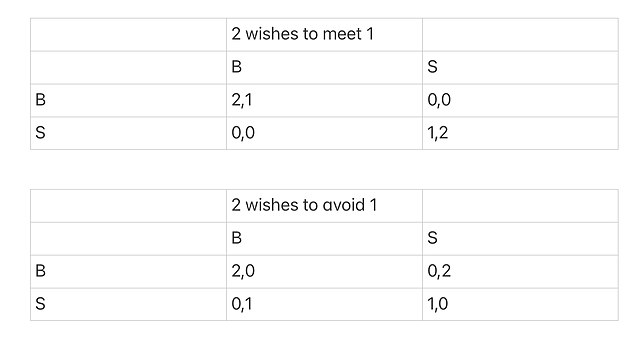In game theory, an extensive-form game is a specification of a game allowing for the explicit representation of a number of key aspects, like the sequencing of players' possible moves, their choices at every decision point, the information each player has about the other player's moves when they make a decision, and their payoffs for all possible game outcomes. Extensive-form games also allow for the representation of incomplete information in the form of chance events modeled as "moves by nature". Extensive-form representations differ from normal-form in that they provide a more complete description of the game in question, whereas normal-form simply boils down the game into a payoff matrix.
A game with incomplete and imperfect information represented in extensive form
A game with infinite action spaces represented in extensive form
Game theory is the study of mathematical models of strategic interactions among rational agents. It has applications in many fields of social science, used extensively in economics as well as in logic, systems science and computer science. Initially game theory addressed two-person zero-sum games, in which a participant's gains or losses are exactly balanced by the losses and gains of the other participant. In the 1950’s it was extended to the study of non zero-sum games and was eventually game applied to a wide range of behavioral relations, and is now an umbrella term for the science of rational decision making in humans, animals, as well as computers.
John Nash
Example of a Bayesian game




